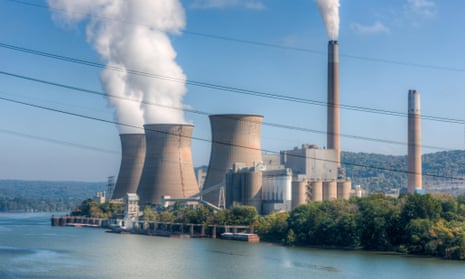Brad Figel’s official title is vice president of public affairs at Mars, the global food manufacturer, but he describes his job more simply. “I’m a lobbyist,” he says.
“I’ve learned to admit it,” he jokes. “It makes me feel better.”
But Figel is no ordinary lobbyist. He is one of the few corporate lobbyists in Washington who works on behalf of meaningful climate action. Mars, for example, supports the EPA’s Clean Power Plan to regulate carbon-spewing coal plants, a cornerstone of the Obama administration’s climate agenda.
Figel can count on several corporate allies in the climate fight, including Ikea, Kellogg, Levi Strauss, Nestle, Nike, Novelis, VF and Unilever. But this handful of activist corporations are vastly outnumbered by lobbyists from the coal, oil and natural gas industries, as well as by the powerful US Chamber of Commerce and the National Association of Manufacturers.
This is no small problem for environmentalists and companies that worry about the climate crisis.
Nonprofit trade association BSR and investor-environmental coalition Ceres are working to change that. The pair hosted several events on Earth Day, including a day of congressional lobbying on behalf of climate action, the release of a new report on business and climate change from BSR, and an evening forum on corporate advocacy and climate change.
BSR’s 77-page report, Creating an action agenda for private-sector leadership on climate change, strikes an upbeat tone, stating: “At BSR, we believe in the transformational power of the private sector. We further believe that businesses can lead to address climate change.”
But in Washington DC, as well as the state capitals where climate policy is being set, the hard truth is that business is not leading – or even playing a constructive role – in addressing climate change. In fact, as the Guardian has reported, out of 50 companies that work with big environmental groups, only three – Mars, Starbucks and Google – publicly support the Clean Power Plan.
Pepsico, one corporation that has been unwilling to take a stand, was represented at the forum by Paul Boykas, vice president of public policy. The company has a strong corporate responsibility program, he explained, ticking off savings in greenhouse gas emissions and water from efficiencies in its operations, its refrigeration equipment, its fleet and its supply chain. Pepsico says it kept its greenhouse gas emissions constant from 2008 through 2012, while growing production volume in foods by 7% and beverages by 12%.
But Boykas says that the company decided to stay out of the fight over the Clean Power Plant – which directly affects coal companies and utilities – because it is not core to Pepsico’s business. “We had a very robust discussion about it internally,” he says.
Interestingly, Pepsico took sides in the climate debate in 2009. It supported the US Climate Action Partnership, which supported a climate regulation bill that passed the House of Representatives and failed in the Senate.
At the time, Democrats held a majority of both chambers. Now, Republicans are in charge of the house. Companies like Pepsico need to work with them on a variety of other issues ranging from health and nutrition to taxes and trade. Pepsico’s political action committee has given more campaign donations to Republicans than Democrats in every election cycle since 1990, according to the Center for Responsive Politics.
Andrew Hutson, who works on corporate partnerships at the Environmental Defense Fund, says the companies need to align their corporate advocacy with their internal sustainability efforts. “Companies can’t be talking out of both sides of their mouth,” Hutson says. “If a core value of your company is sustainability, your government affairs should be supporting that as well.” That means ending support for candidates and trade association who stand in the way of climate regulation.
Figel and Boykas say that membership in trade associations like the US Chamber of Commerce is a tricky issue for companies. While the chamber opposes climate action, it also does important work on issues like taxes, trade and intellectual property. When Figel was the chief lobbyist for Nike, he recalls, the company left the chamber board over the climate issue, but remained a member.
Mars, he explains, is taking a leadership role on climate because of potential threats to its supply chain. “If Mars can’t get cocoa, rice, fish for our pet food business or mint for our gum, we’re really in a lot of trouble,” he says. But he adds that many companies which are concerned by the business risks posed by climate change have yet to bring their concerns into the political arena.
“I know very few multinational companies who don’t have phenomenal sustainability stories,” Figel says. “I really question whether they are using their advocacy voice.”
The leadership hub is funded by Xyntéo. All content is editorially independent except for pieces labelled ‘brought to you by’. Find out more here

Comments (…)
Sign in or create your Guardian account to join the discussion